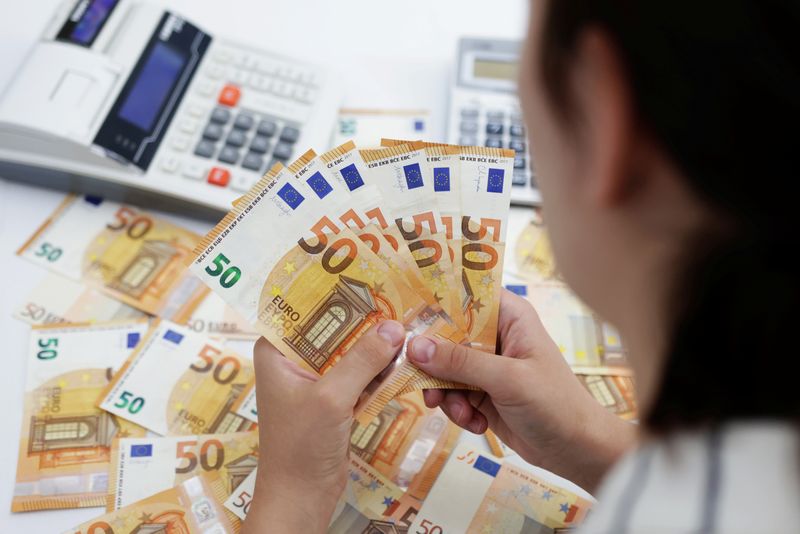FRANKFURT (Reuters) - Bank lending to euro zone companies tumbled in December, effectively ending the sector's biggest borrowing binge in more than a decade as rising interest rates and a possible recession appear to be taking their toll, European Central Bank data showed on Friday.
With inflation soaring to double digit territory late last year, the ECB hiked rates by an unprecedented 2.5 percentage points in just six months, hoping to cool demand and prevent longer term inflation expectations from moving higher.
Lending to businesses in the currency bloc expanded by 6.3% in December after an 8.3% reading a month earlier, while household credit growth slowed to 3.8% from 4.1%.
"Sharp (OTC:SHCAY) declines in private sector borrowing in December show that the ECB's sharp interest rate rises are starting to have the desired effect," ING economist Bert Colijn said. "Now we see sharp declines in (corporate) borrowing occurring, which is in fact more of a recessionary sign."
The monthly flow of loans to companies was a negative 16 billion euros after a minus 4 billion euro reading a month earlier.
Rate hikes take up to 18 months to feed into the broader economy so a further drag on lending is likely, especially as the ECB is far from done with rate increases.

Its 2% deposit rate is all but certain to rise another half percentage point on Feb. 2 and rate are now expected to peak around 2.45% mid-year, according to current market pricing.
Growth in the M3 measure of money circulating in the euro zone, often seen as an indicator of future economic expansion, meanwhile dropped to 4.1% from 4.8%, coming well below expectations for 4.6% in a Reuters survey.